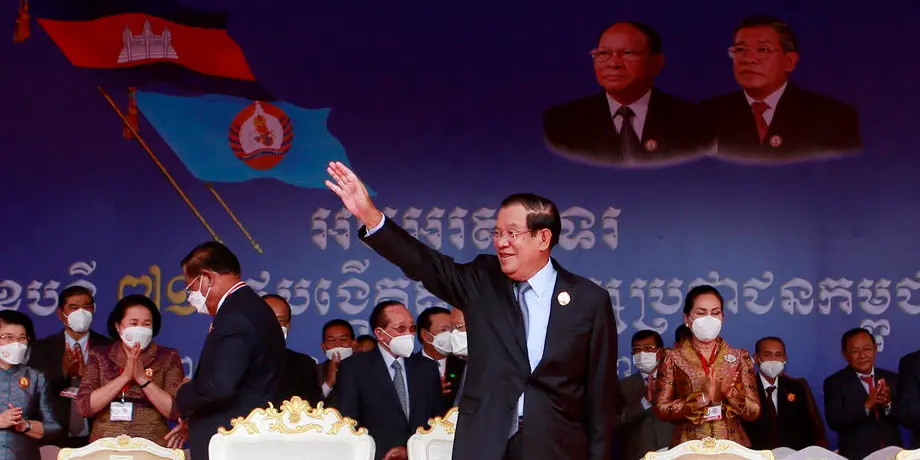
Proposed changes to Constitution ‘death sentence’ for democracy in Cambodia, Southeast Asian MPs warn
July 27, 2022

JAKARTA – Southeast Asian parliamentarians have expressed alarm at reports in Cambodia on proposed changes to the country’s constitution, describing them as a death sentence for democracy in the country. One of the proposed amendments would eliminate the need for the National Assembly to approve the designated prime minister, a move that would pave the way for Prime Minister Hun Sen to transfer power to his son Hun Manet.
“The government claims that the intention of the changes is to ensure a functioning government, but many of them are designed to cement the power of Hun Sen and his cronies by giving more power to the Executive branch of government in detriment of the Legislative. If confirmed, this move would be just the latest example of Hun Sen trampling over democratic processes and the rights of millions of Cambodians just so he can further enrich his family and others who have benefitted from the corruption that has become rampant under his rule,” said Kasit Piromya, former Thai Foreign Minister and MP, and Board Member of ASEAN Parliamentarians for Human Rights (APHR).
The most worrying amendment is that of Article 119, which concerns the appointment of the Prime Minister. In its current form, the article states that the National Assembly must elect a prime minister from the winning party. Changes being proposed, however, would only require the party with the most seats in the National Assembly to propose to the King who he can appoint as Prime Minister to form the government, thus avoiding a debate in Parliament on the qualifications of the candidate.
Other changes include giving the Prime Minister the prerogative to appoint an interim Prime Minister, or increasing, from 30 to 42, the number of members of Parliament that can bring a non-confidence vote on the Prime Minister or members of the Cabinet.
Hun Sen’s Cabinet has reportedly already approved the amendments, leaving only the Parliament to pass them into law. The ruling Cambodian’s People Party (CPP) occupies all 125 seats in Parliament, since the most prominent opposition party, the Cambodia National Rescue Party (CNRP), was arbitrarily dissolved in 2017 on bogus charges of treason. The government has decided on these important amendments completely on its own, without conducting any consultation with civil society or other political parties.
“As Cambodia moves towards a general election next year, it is clear that, with these changes, Hun Sen wants to make sure his party will remain in control by putting as many obstacles as possible to the opposition. For instance, increasing the number of representatives who can bring a vote of non-confidence as a measure to disarm in parliament any opposition party that does well at the polls. These amendments should be seen in the light of a long series of assaults against the electoral process in which Hun Sen and his party have been engaging for years,” said Piromya.
The move to change the Constitution comes shortly after the Communal and Sangkat Elections on 5 June. The campaign was conducted in a climate of harassment against the opposition, as APHR denounced at the time. Yet, in spite of those conditions, the main opposition formation, the Candlelight Party, obtained 22 percent of the popular vote.
The move also comes seven months after Hun Manet, Hun Sen’s oldest son, was elected as the “prime minister candidate of the future” by the CPP, thus paving the way for him to succeed his father at an unspecified point in the future.
“Any changes to the constitution must be achieved through a referendum, not at the whims of a dictator. Hun Sen and other autocrats in the region, such as the military junta in Myanmar, continue to twist laws for their personal undemocratic aims. This has consequences beyond Cambodia’s borders, as Southeast Asia is undergoing an autocratic turn with a contagious effect from country to country. The international community should apply pressure on the Hun Sen’s regime to drastically change course, and to allow for democracy and human rights to flourish once more in the country,” said Piromya.
ASEAN Parliamentarians for Human Rights (APHR) was founded in June 2013 with the objective of promoting democracy and human rights across Southeast Asia. Our founding members include many of the region's most progressive Members of Parliament (MPs), with a proven track record of human rights advocacy work.